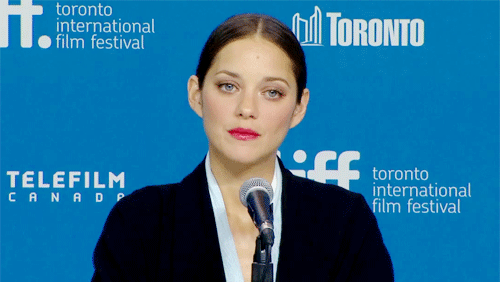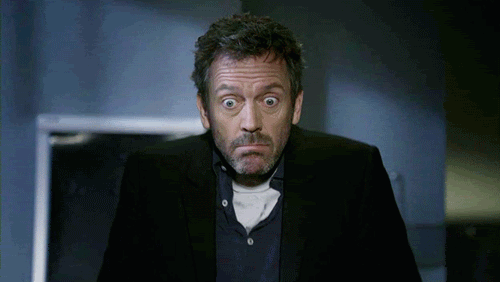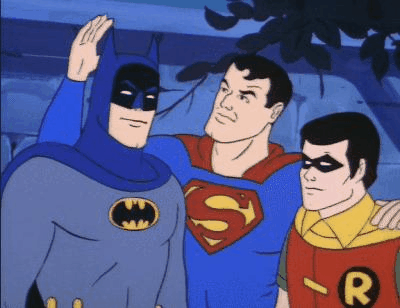I posted this picture last week on Instagram and Twitter.
I did so for a lot of reasons, not least of all is this: I am a woman who wears a hijab every day. People see me and even though they shouldn't, they look at me at least a little bit to see what Islam is. I am conscious of this and try to show them the Islam I know: love, kindness, respect, and humility. It is equally important, especially lately unfortunately, to also show them what Islam is not.
And Islam is not ISIS, or their doctrine.
I have received a lot of support for this post, and for that I am grateful. There have also been a few responses I've gotten, both directly and indirectly, vis à vis Facebook and Twitter posts about "Muslim apologists" (yeah, I see you) that I felt were problematic and warranted further address.
But before I do that, let me been unmistakeably, unequivocally clear:
This is not an apology.
To non-Muslim brothers and sisters of the Books (often, Christians) who say, "How can you say this is not Islam when they are quoting the Qur'an, too? How is this anything but pure Islam?"
I felt like this was addressed in the post itself, but allow me to delve a little deeper. Are there not verses in the Bible calling for violence? Of course there are. And just like ISIS appropriated out of context verses from the Qur'an, the Klu Klux Klan (in addition to the Westboro Baptist Church and several other groups) appropriated out of context verses from the Bible to further their own violent, greedy, racist, hateful ends. Would you call any of these doctrines "pure Christianity"? Of course not.
That is because these people and their dogmas are not religious, they are extremist. It is unfortunate, and a test of our faiths, that these people exist alongside us. And just like there is the Gospel of Jesus (pbuh), which in its teachings of love and mercy seem to at times contradict the wrathful, brutal, absoluteness of God (swt) in the Old Testament, the hadiths are offered to supplement the Qur'an, and teach of love, mercy, and respect for human life. I am not a responsible Muslim or you Christians if we do not take into advisement all of the resources and teachings granted to us by God (swt).
So as a Christian, do not tell me these men equate to my religion unless you are willing to accept the KKK as equitable to your own.
To Atheists, who say, "You're right, this is not just Islam, this is all religion. They are all irrational/violent/dangerous."
Much like my response to my above brothers and sisters in Christianity: yes, each of the Abrahamic religions has several passages in their Holy Books calling for violence of some type. But these are tempered with other passages, both in the Holy Books and by the respective prophets, which advocate peace, love, and mercy. Yes, there is a duality but it therefore requires reason to work out.
It is perhaps because of this that with Islam there is a requirement in the Qur'an of consensus of the ummah (Muslim community) before major community decisions can be made, and beyond that, a requirement of consensus between well studied individuals and academics before decisions regarding the faith (such as fatwas) can be made. Sounds pretty rational to me, because if you allow one man to have the power to cherry-pick the verses or the interpretations to his liking, you will get people like bin Laden and al-Baghdadi, and consequently their followers.
And make no mistake: there has been no such consensus that what these men are doing is right or representative of the faith. There are extremists out there who do you think so, but they make a miniscule portion of the ummah (this is proven with statistics). And may God (swt) help their lost souls.
And finally...
To my brothers and sisters in Islam who say, "Stop apologizing," because "if we're to apologize for this than X group needs to apologize for Y event," or "This has nothing to do with us, we are good Muslims."
You are wrong about one thing: as the title states, this is not an apology. This is a declaration. I am not saying "I'm sorry for Islam." I am saying, "These barbarians do not speak for me or my religion."
You are right about one thing: every powerful country and group in the world has a lot to apologize for. There have been so many atrocities, so much loss of life, so much war, famine, poverty in just the last hundred years, and a lot of apologies are due. Humanity has a lot to answer for.
But can we control the American government officials? Or the British, Israeli, Indian, Iranian, French, Pakistani, German? No, we can't, not in a tangible way. Unless you are a member of these organizations at the highest level the likelihood you will make an impact is nil. But you are a member of the ummah. You do have an impact there, and moreover, a responsibility to it. And maybe it's not fair, but that's not the question. You can't answer one wrong with another, one complacency with another.
That is the one thing I know for sure, that is the essence to me of the teachings of the Prophet Mohammed (pbuh) and Prophet Jesus (pbuh): in the face of injustice, it is not right to reciprocate that injustice. Granted, we are not as strong as these men. But we still have an obligation as Muslims to conduct ourselves the way they demonstrated and the way Allah (swt) commands, to the best of our ability.
Which brings me to the next point: "This has nothing to do with us! We're not out there spewing this vitriol, propagating this hate, committing these monstrous acts!" Yes, of course, that's true in a literal sense. But that does not change the fact that these men, these boys, are doing these things in the name of our religion. Doesn't that terrify you? Allah (swt), Prophet Mohammed (pbuh), and Islam are being degraded and besmirched by these horrific events not only in the eyes of non-Muslims but by Muslims too! Why else would these boys from the UK, US, Belgium, etc be going to join forces with them? They are being told by these animals that this is what Islam is and not enough people are showing them it is not.
No one is standing up and saying, "Not in my name. Not in the name of my Prophet, my God, or my religion."
Not now, not ever.














